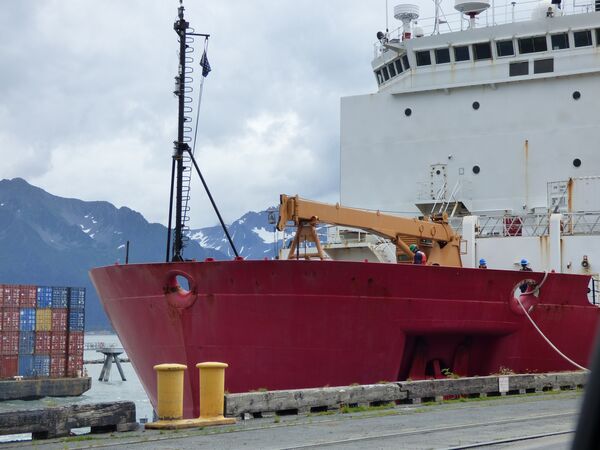
US Coast Guard Healy is providing support for Office of Naval Research studies in the Arctic. (Michael Fabey)
The US Coast Guard (USCG) cutter Healy (WAGB 20), one of two USCG icebreakers and the only one specifically designed for Arctic research, in late July and early August offloaded Office of Naval Research (ONR) equipment onto a floe of multi-year ice for the first of three multi-instrument ice stations in the Arctic Ocean Basin, the USCG confirmed on 14 August.
Healy offloaded the equipment onto the floe above 77 degrees north, which was selected for its size and composition of multi-year ice, the USCG said.
The equipment included two major instruments: the Waves, Weather, Ice Mass, Balance, and Ocean (WIMBO) weather buoy destined to remain at sea and a Dynamic Ocean Topography device, collecting sea surface data, according to the USCG.
Science instruments such as the WIMBO are “individual components of a greater project, the Arctic Mobile Observing System (AMOS), a network of robotic oceanographic instruments making years-long autonomous observations of ocean and sea ice physics”, the USCG noted.
“The ONR AMOS programme focuses on developing technologies for making continuous, long-term scientific observations of the Arctic marine environment,” Craig Lee, a University of Washington's Applied Physics Laboratory scientist and leader of the science party on Healy , said in a statement.
Commissioned in 1999, Healy is the largest and most technologically advanced of the two USCG icebreakers. The ship is now on deployment for up to five months in support of science missions across the Arctic region, the USCG said. Following the work in support of ONR, Healy
Looking to read the full article?
Gain unlimited access to Janes news and more...







